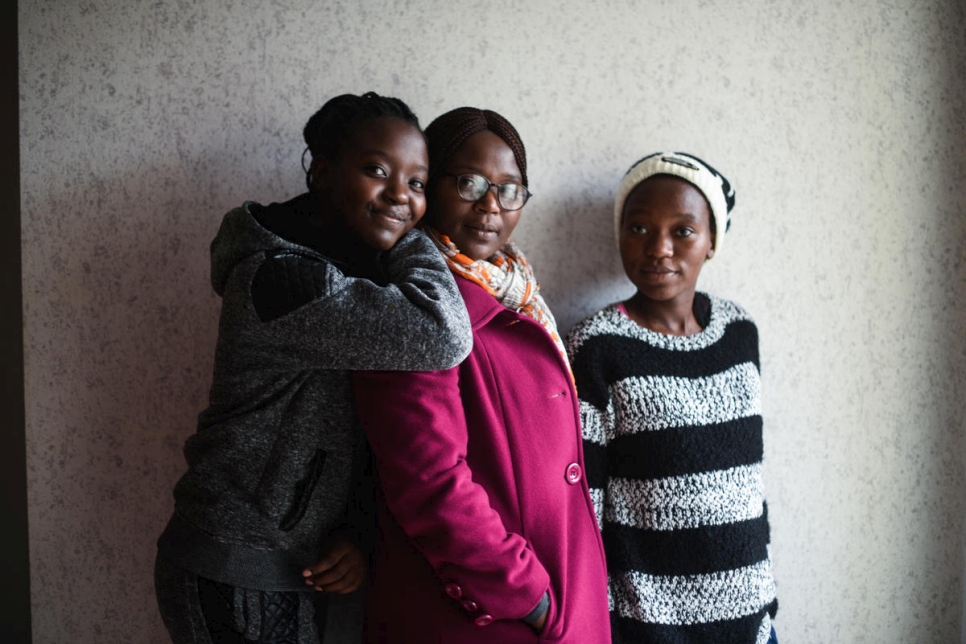 Reunited Congolese family (left to right) Estelle, Grace and Eliane outside their apartment in Dijon, France. © UNHCR/Benjamin Loyseau
Reunited Congolese family (left to right) Estelle, Grace and Eliane outside their apartment in Dijon, France. © UNHCR/Benjamin Loyseau
A new study released today shows that 1.5 million people from nations driving major refugee movements were admitted by 35 OECD countries and Brazil on family, work and study permits in the decade just prior to the COVID-19 pandemic.
The latest report by UNHCR, the UN Refugee Agency, and the OECD, the Organisation for Economic Co-operation and Development , titled “Safe Pathways for Refugees II“, examines admissions from 2010 to 2019 of people from seven countries propelling displacement: Afghanistan, Eritrea, Iran, Iraq, Somalia, Syria and Venezuela.
Out of the 1.5 million non-humanitarian permits issued within the decade to help people from these countries, 156,000 were granted in 2019 alone. This exceeds an annual target of 120,000 set in a global resettlement and complementary pathways strategy launched by governments, civil society and UNHCR.
“We are encouraged by the great efforts of many states to admit refugees through these additional, safe pathways. These have reunited displaced families and given refugees the opportunity to use their talents, skills and expertise to give back to their new communities as well as rebuild their lives,” said UNHCR’s International Protection chief, Gillian Triggs.
While data for 2020 is yet to be compiled, the two organizations expect numbers of admissions in this period to be significantly less owing to closed borders and travel restrictions imposed in response to the COVID-19 pandemic.
“We must not let COVID-19 thwart the exceptional progress that has been made in expanding these pathways. While they are not a substitute for resettlement and humanitarian admissions, which offer more robust and longer-term forms of legal protection, they are safe and orderly forms of admission that can save lives and benefit many refugees,” said Triggs.
The report also provides data on the numbers of people from the seven refugee source countries that have been granted refugee status or humanitarian permits, and who have been resettled.
Over the ten-year reporting period, four million new asylum applications from people from these countries were submitted in OECD states and Brazil. More than two million were recognized as refugees or granted a subsidiary form of protection, and 572,000 were admitted through refugee resettlement schemes.
With developing and least-developed countries hosting 85 per cent of the world’s 26 million refugees, one of the key objectives of the Global Compact on Refugees is to increase resettlement and complementary pathways to better protect those forced to flee and to support host countries.
In this spirit of global responsibility sharing, UNHCR is urging more countries to resettle refugees, to increase the availability of complementary pathways and to reduce barriers to admissions.
Impediments for refugees to access these schemes include, among others, documentation requirements, difficulty accessing embassies and consulates of the destination country, application fees, travel costs and a lack of information and assistance.
Though family reunification procedures exist in most countries, administrative and financial barriers limit their accessibility. Many refugees unable to find reunification through safe and legal pathways often resort to crossing international borders through perilous journeys on land and sea.








